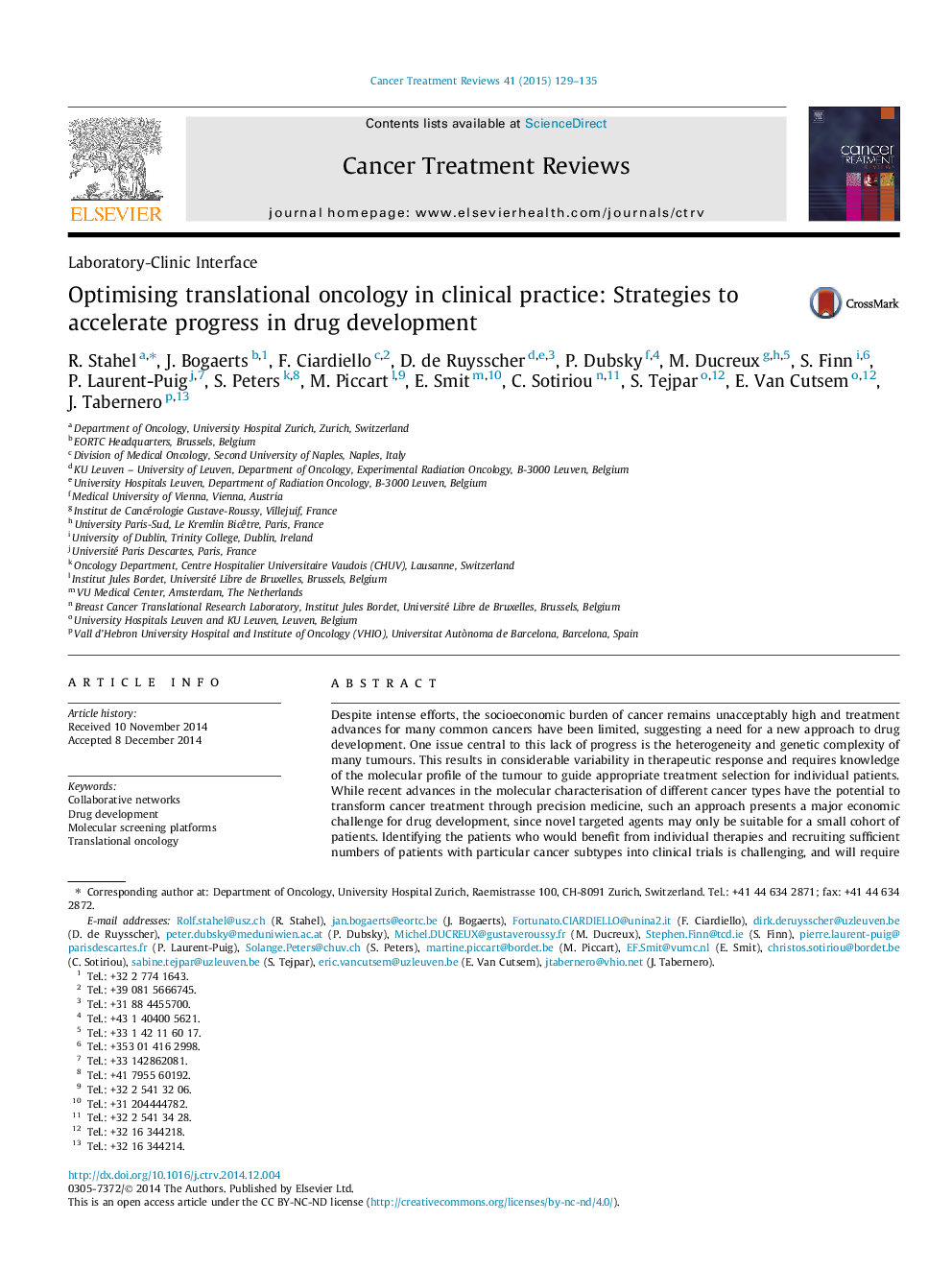| کد مقاله | کد نشریه | سال انتشار | مقاله انگلیسی | نسخه تمام متن |
|---|---|---|---|---|
| 6190450 | 1257370 | 2015 | 7 صفحه PDF | دانلود رایگان |
- Treatment advances in oncology are limited and new approaches are needed.
- Tumour heterogeneity is a key issue underlying this lack of progress.
- Molecular characterisation of cancer subtypes could transform future treatment.
- Clinical trial recruitment for rare cancer subtypes is challenging.
- Potential collaborative approaches designed to accelerate progress are discussed.
Despite intense efforts, the socioeconomic burden of cancer remains unacceptably high and treatment advances for many common cancers have been limited, suggesting a need for a new approach to drug development. One issue central to this lack of progress is the heterogeneity and genetic complexity of many tumours. This results in considerable variability in therapeutic response and requires knowledge of the molecular profile of the tumour to guide appropriate treatment selection for individual patients. While recent advances in the molecular characterisation of different cancer types have the potential to transform cancer treatment through precision medicine, such an approach presents a major economic challenge for drug development, since novel targeted agents may only be suitable for a small cohort of patients. Identifying the patients who would benefit from individual therapies and recruiting sufficient numbers of patients with particular cancer subtypes into clinical trials is challenging, and will require collaborative efforts from research groups and industry in order to accelerate progress. A number of molecular screening platforms have already been initiated across Europe, and it is hoped that these networks, along with future collaborations, will benefit not only patients but also society through cost reductions as a result of more efficient use of resources. This review discusses how current developments in translational oncology may be applied in clinical practice in the future, assesses current programmes for the molecular characterisation of cancer and describes possible collaborative approaches designed to maximise the benefits of translational science for patients with cancer.
Journal: Cancer Treatment Reviews - Volume 41, Issue 2, February 2015, Pages 129-135
